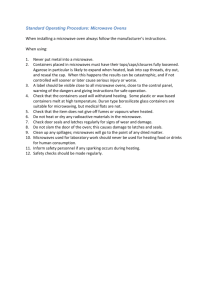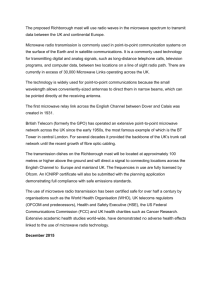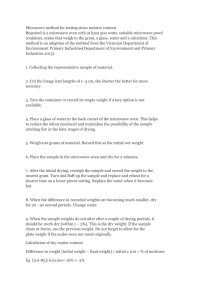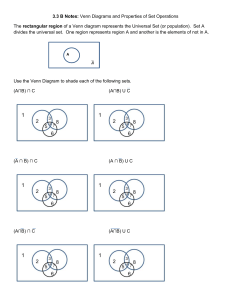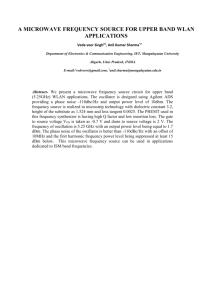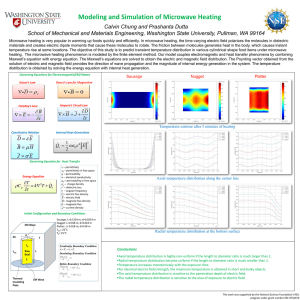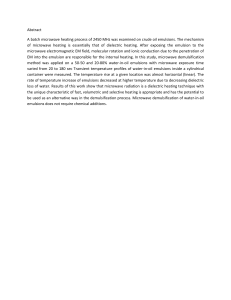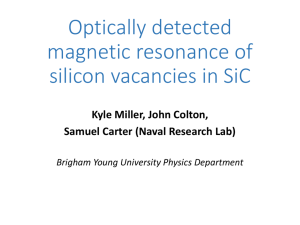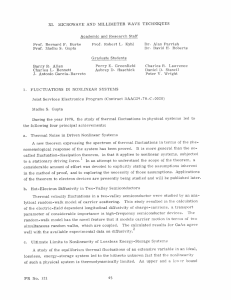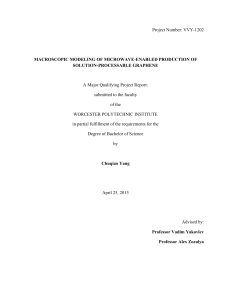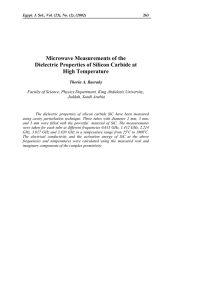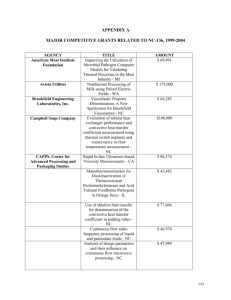Microwave Chemistry`s Thermal Effect
advertisement
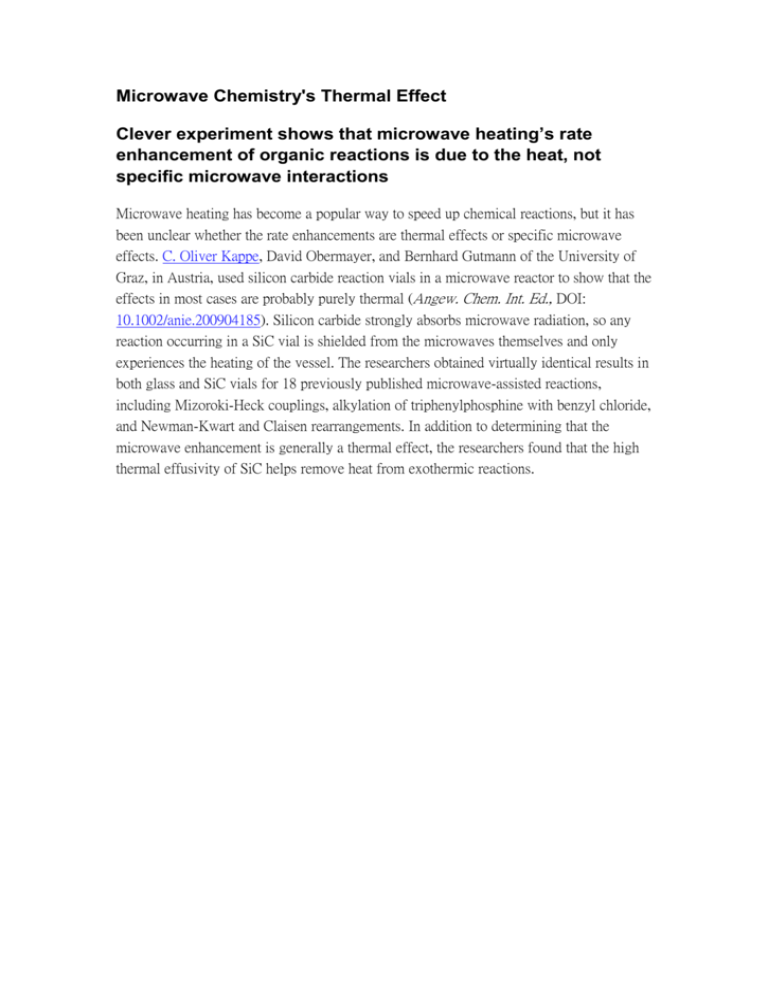
Microwave Chemistry's Thermal Effect Clever experiment shows that microwave heating’s rate enhancement of organic reactions is due to the heat, not specific microwave interactions Microwave heating has become a popular way to speed up chemical reactions, but it has been unclear whether the rate enhancements are thermal effects or specific microwave effects. C. Oliver Kappe, David Obermayer, and Bernhard Gutmann of the University of Graz, in Austria, used silicon carbide reaction vials in a microwave reactor to show that the effects in most cases are probably purely thermal (Angew. Chem. Int. Ed., DOI: 10.1002/anie.200904185). Silicon carbide strongly absorbs microwave radiation, so any reaction occurring in a SiC vial is shielded from the microwaves themselves and only experiences the heating of the vessel. The researchers obtained virtually identical results in both glass and SiC vials for 18 previously published microwave-assisted reactions, including Mizoroki-Heck couplings, alkylation of triphenylphosphine with benzyl chloride, and Newman-Kwart and Claisen rearrangements. In addition to determining that the microwave enhancement is generally a thermal effect, the researchers found that the high thermal effusivity of SiC helps remove heat from exothermic reactions.
